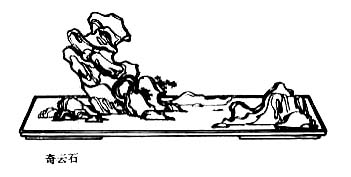溫
故
知
新
Wengu zhixin 
詩
經
Shi Jing ![]()
![]() – The Book of Odes
– The Book of Odes
The oldest collection of Chinese poetry, more than three hundred songs, odes and hymns. Tr. Legge (en) and Granet (fr, incomplete).
論
語
Lun Yu ![]()
![]() – The Analects of Confucius
– The Analects of Confucius
The Master discusses with his disciples and unveil his preoccupations with society. Tr. Legge (en), Lau (en) and Couvreur (fr).
大
學
Daxue ![]()
![]() – The Great Learning
– The Great Learning
Confucean thought summarized for the Prince. Tr. Legge (en), Pauthier (fr), Bog (fr).
中
庸
Zhongyong ![]()
![]() – The Doctrine of the Mean
– The Doctrine of the Mean
Confucius' grandson comments about the Way and human nature. Tr. Legge (en)
三
字
經
San Zi Jing ![]()
![]() – The Three-Character Classic
– The Three-Character Classic
A textbook helpfull to start learning Classic Chinese. Tr. Giles (en) and Deverge (fr).
易
經
Yi Jing ![]()
![]() – I Ching, the Book of Changes
– I Ching, the Book of Changes
This famous system of 64 hexagrams plus their commentaries and transformations is at the root of Chinese thought. Tr. Wilhelm (en, fr).
道
德
經
Dao De Jing ![]()
![]() – The Way and Its Power
– The Way and Its Power
The naturalist, individualist and politic doctrine of Lao-tse exhibited in 81 poetic and obscure texts. Tr. Waley (en), Lau (en), Julien (fr) and Wilhelm (de).
An anthology of 320 poems. Discover Chinese poetry in its golden age and some of the greatest Chinese poets. Tr. by Bynner (en).
孫
子
兵
法
Sun Zi ![]()
![]() – The Art of War
– The Art of War
Chinese strategy explained : know yourself and the ennemy, use deception, spies, and "win with ease". Tr. Giles (en, annotated) and Amiot (fr).
三
十
六
計
36 Ji ![]()
![]() – Thirty-Six Strategies
– Thirty-Six Strategies
A recently uncovered notebook of 36 proverbs commented as military tactics that helps dealing with conflicts. Tr. Verstappen (en), Doc Mac Jr (fr).
Random samples
The dolichos grows, covering the thorn trees ; / The convolvulus spreads all over the waste. / The man of my [...] Cf. Shijing 124 | Tsze-hsiâ said, "There are learning extensively, and having a firm and sincere aim; inquiring with earnestness, and [...] Cf. Lunyu 490 | Po / Splitting Apart / The mountain rests on the earth: The image of SPLITTING APART. Thus those above can ensure [...] Cf. Yijing 23 |
Can you keep the unquiet physical-soul from straying, hold fast to the Unity, and never quit it? / Can you, when [...] Cf. Daodejing 10 | High above, from a jade chamber, songs float half-way to heaven, / The palace-girls' gay voices are mingled with [...] Cf. Tangshi 278 | Hence, though an obstinate fight may be made by a small force, in the end it must be captured by the larger force. [...] Cf. Sunzi 32 |
Foreword
In these pages it's possible to read the Analects of Confucius (Lunyu), The Way and its Power (Daode Jing) attributed to Lao-tse and some other wisdom or poetry texts in Chinese with English and French translations. Any Chinese characters are linked to dictionaries. Your browser must display Chinese.
Why read Confucius, Lao-tse or the Book of Changes? Well, these Chinese classics have had a major influence on the oldest civilization still in existence on the face of this planet; that should be enough. If not, please consider that China, mostly as a distant mirror where hopes and fears are reflected, has exercised a profound impact on the thinking patterns of Western civilisations, and will. This article in the Routledge Encyclopedia of Philosophy explains things better.

Wengu – Chinese Classics – Chinese on/off – Français/English
The Book of Odes, The Analects, Great Learning, Doctrine of the Mean, Three-characters book, The Book of Changes, The Way and its Power, 300 Tang Poems, The Art of War, Thirty-Six Strategies
Welcome, help, notes, introduction, table.
Index – Contact – Top






